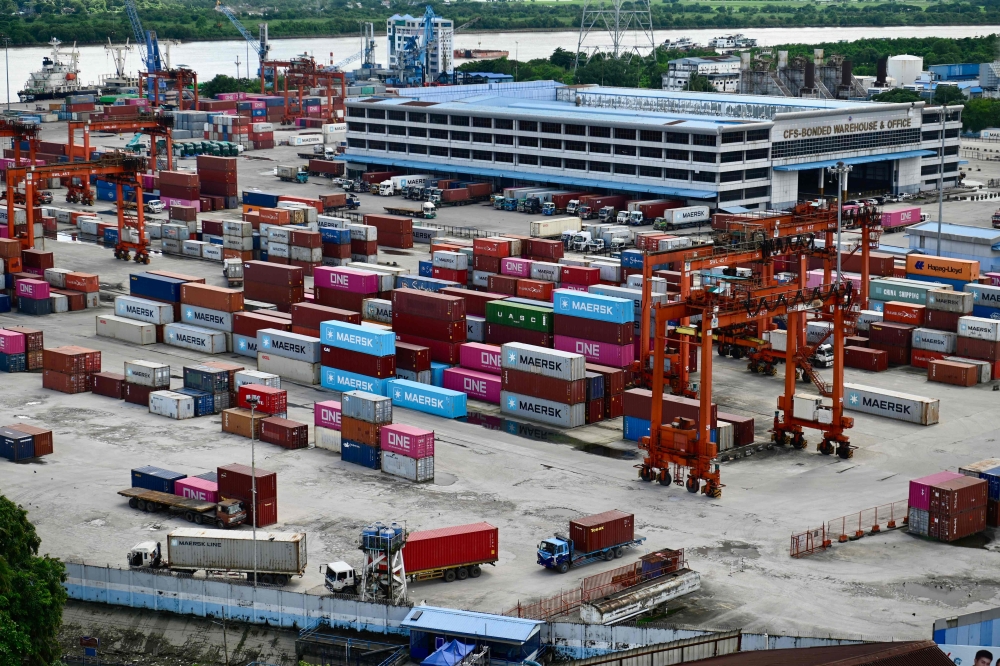JULY 19 — Whether or not Malaysia secures a lower tariff rate from the United States is, in the grand scheme of things, likely immaterial. President Donald Trump’s tariff crusade is not about fairness, economic logic, or even coherent strategy. It is about asserting dominance through disruption. Vietnam and Indonesia may have obtained a framework to trade with the United States at 20 and 19 per cent tariff rates respectively, but even those so-called preferential rates are neither safe nor durable. The Philippines, a longstanding security ally of the United States, has also seen its export tariffs pegged at 20 per cent. This reveals the internal incoherence of Trump’s trade doctrine: loyalty earns no economic reprieve; size grants no immunity; and history, it seems, offers no redemption.
Trump recently affirmed that 150 letters of notification would soon be sent out to a host of countries. He has dismissed these nations as “small countries that don’t trade with the United States by much.” This is not efficiency — it is chaos disguised as nationalism. Such mass notifications signal not economic recalibration, but diplomatic carelessness. It smacks of arbitrary punishment masked as strategy. If everyone is being sanctioned, tariffed, and publicly humiliated — friend or foe alike — then the logic of alliance, trade rules, and economic order collapses.
The historical echo of misguided economic nationalism
It is not the first time a Western leader has made decisions with disastrous economic consequences. Winston Churchill, often remembered as a wartime hero, made one of the gravest economic misjudgements of the early 20th century: the decision to return Britain to the gold standard in 1925 at the pre-World War I exchange rate. Effectively, this meant overvaluing the British pound, which throttled export competitiveness, stunted economic recovery, and deepened unemployment in the interwar period. By clinging to a prestige currency, Britain lost its manufacturing edge to a more adaptive France and a rapidly industrialising Germany. The Second World War merely sealed the fate of a weakened empire — Churchill’s monetary misstep had already drained the British economy of much of its vitality.
Similarly, President William McKinley’s administration in the late 19th century was built on the idea of protectionism as a means to bolster American industries. His 1897 Dingley Tariff was one of the highest in U.S. history, raising duties on foreign goods to an average of 52 per cent. While it temporarily enriched a few industrial giants, it inflicted harm on American consumers and global partners. Worse, it sowed the seeds of retaliation abroad, weakening the international trade system just as the world was beginning to integrate. The illusion of growth was propped up by exclusionary policies, not real productivity gains or competitiveness.
Malaysia must not wait for favour
Malaysia, at this critical juncture, must understand that the global trade winds are shifting not toward liberalisation, but toward contraction. The world is not about to go through a soft rebalancing; it is plunging into a hard correction. ASEAN countries, even those seen as more agile like Vietnam, will not be spared. Many of their gains from US-China trade diversion are now viewed with suspicion. Firms originally from China but relocated to Vietnam, Malaysia, or Thailand may still be treated by Trump as indirect violators of his tariff line. This is not accidental; it is by design.
To prepare for this new order, Malaysia must think beyond plea bargaining for tariff exemptions. The real task is to design contraction-proof policies — policies that can insulate the Malaysian economy from external shocks, especially from unpredictable economic hegemonies. Such policies begin with supply chain resiliency. Malaysia must deepen its internal value-added production processes, rather than merely act as a pass-through for foreign firms. Trade facilitation must be balanced by trade ownership — producing and branding Malaysian technology, rather than assembling foreign parts.
The fallacy of over-reliance on external markets
The economic structure of Malaysia, like many export-oriented economies, is particularly vulnerable to overdependence on the U.S. and China. As long as 60–70 per cent of Malaysian trade is dependent on just a few key markets, then the economy remains exposed to geopolitical risk. What Malaysia must urgently do is increase its intra-ASEAN trade, as well as trade with secondary yet high-growth regions like Latin America and Central Asia. This does not mean abandoning the West or China but rather diluting the risk of overexposure.
Fiscal policy, too, must become more counter-cyclical. The Malaysian government should resist the temptation to slash spending in the face of shrinking revenues due to global headwinds. Instead, it must target stimulus measures toward the informal sector, SMEs, and the digital economy. These are the shock absorbers of economic distress. To cut support for these sectors during a downturn would be to enact austerity in the middle of a storm — an act of political and economic recklessness.

Trucks queue next to containers at the Myanmar Industrial Port along the Yangon River in Yangon on July 18, 2025. — AFP pic
Diversifying through strategic sovereignty
In navigating this global contraction, Malaysia must embrace strategic sovereignty. This concept demands more than neutrality in great power rivalries. It entails building the capacity to make choices without being coerced. For example, strengthening cybersecurity protections and digital infrastructure makes Malaysia less dependent on foreign tech ecosystems that could be weaponised through sanctions. Likewise, investing in food security through vertical farming, smart agriculture, and regional procurement networks would reduce vulnerability to global supply disruptions.
Moreover, Malaysia’s fiscal policy should begin to envision resource-backed sovereign guarantees — not as a tool for borrowing excessively, but for creating a safety net when traditional debt markets become unstable. Institutions like Khazanah Nasional or Petronas can be repurposed as guarantors of strategic investments in energy transition, biotechnology, and advanced manufacturing. The goal must be long-term autonomy, not short-term appeasement.
The fallacy of waiting for favour
President Trump’s erratic tariff policies are not premised on any transparent rules-based system. They are performative exercises of strength. His administration’s outlook views international trade as a zero-sum game. In such a game, appealing for mercy is futile. Instead, Malaysia must re-anchor its trade and economic philosophy around regional solidarity, local innovation, and strategic hedging.
While Vietnam’s and Indonesia’s tariff frameworks may seem manageable for now, these deals are inherently unstable. Trump may change terms overnight if he feels strategically slighted or economically undermined. The Philippines, despite aligning with many of Trump’s geopolitical preferences, is being penalised just the same. This indicates that for Malaysia, loyalty is not protection, and neutrality is no longer a shield.
Malaysia should not wager its economic future on the whims of a man who governs by spectacle. Rather, it must insulate itself through resilient planning, intelligent diversification, and civilisational depth. Only by embracing contraction-proof policies can the country withstand the economic shockwaves of a post-globalisation world where trade is no longer about mutual prosperity, but coercive leverage.
Conclusion: Learning from the past, not repeating it
Winston Churchill clung to the prestige of an overvalued pound. William McKinley believed punitive tariffs would create a fortress economy. Both were wrong — and history judged them harshly. Trump is repeating their errors on a global scale. But Malaysia does not have to be a casualty of this cycle. It can learn, adapt, and lead — not by waiting for concessions, but by rewriting the playbook for resilience.
* Phar Kim Beng is a professor of Asean Studies and director of the Institute of Internationalization and Asean Studies at the International Islamic University of Malaysia
** This is the personal opinion of the writer or publication and does not necessarily represent the views of Malay Mail.






